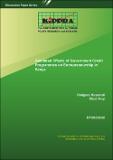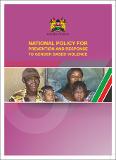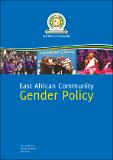| dc.description.abstract | Addressing gender-based disparity in entrepreneurship is of policy importance
globally. It does not only correct a social inequality but also enhances productivity
and improves development outcomes. While appreciating that women and
men face different opportunities and constraints in entrepreneurship, access to
finance remains a challenge, in particular where the former tend to be adversely
affected. Among other attributes, Kenya women-owned establishments tend to be
less productive and have higher incidences of being necessity entrepreneurship
compared to men-owned ones. In recognition of existing gender gaps in
entrepreneurship and finance, the Government of Kenya has established several
funds as avenues for gender mainstreaming. The mandates of these funds were
tailored to respond to the Millennium Development Goals and Sustainable
Development Goals, including but not limited to eliminating discrimination
against women and girls, decent job creation, entrepreneurship, creativity and
innovation, and encourage access to financial services. The impact of these funds
in bridging gender gaps in entrepreneurship remains unexplored. The current
study aims to address this literature gap by assessing the role of government
funds in bridging the gender gap in entrepreneurship in Kenya. The specific
objectives were to: (a) examine the role of gender in accessing government
affirmative action funds; (b) determine whether government funds have any
impact on entrepreneurship; and (c) determine whether gender moderates the
impact of government funds on entrepreneurship. The study results indicate
that access to government credit is not influenced by gender, meaning that
both male- and female-owned establishments have an equal opportunity to
access government credit. In addition, access to government credit fails to
statistically impact on the rate of opportunity entrepreneurship but negatively
impacts on the rate of necessity entrepreneurship. Access to government credit,
however, strongly impacts on growth of the establishments. Male-owned
establishments which access government credit have reduced chances of being
necessity entrepreneurs. Contrarily, access to government credit fails to impact
entrepreneurial outcomes among female-owned establishments | en |




